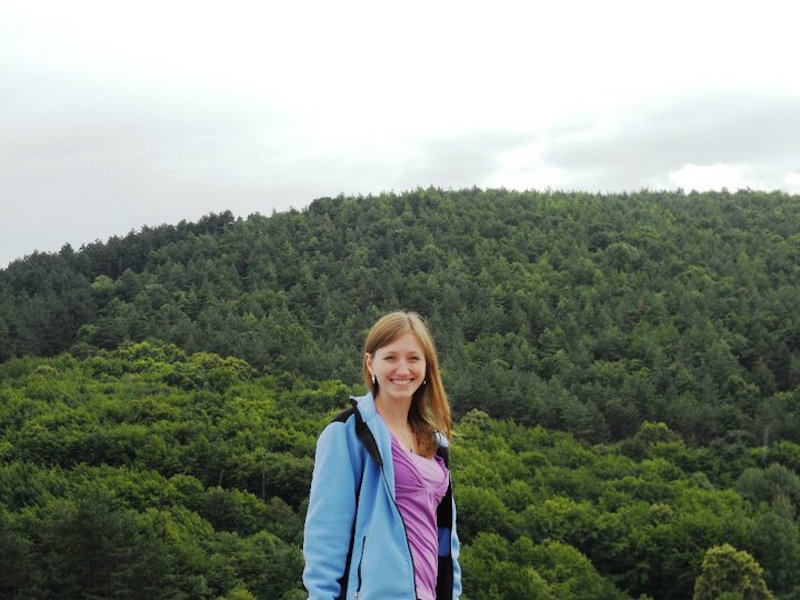Chemistry
Biochemistry

What is your current job?
I am currently the Deputy Program Manager for the National Medal of Technology and Innovation at the U.S. Patent and Trademark Office. The award is American's highest honor for technological achievement, bestowed by the president of the United States to leading innovators. In addition, I work on other science outreach programs at the USPTO in partnership with the National Inventors Hall of Fame.
Why did you choose this profession?
While in graduate school for biology, I realized that I didn't want to be a researcher or stay in academia, so I shifted my focus to science communication and outreach. I have always been interested in the intersection of science and the public, so I have worked in various areas of that field since grad school. I've spent time working on public relations, public engagement, science outreach events, communication training for scientists, and science award programs.
What more do you wish to accomplish in your professional career?
There is still a lot to be done in supporting the work of scientists and innovators in the public eye. I am going to continue to seek opportunities to bring scientists and public audiences together to not only celebrate science and innovation, but to help both sides of the equation understand each other better.
Tell us about a decision or change you made that turned out to be a positive career move.
I was originally in a biology Ph.D. program in graduate school, then I realized if I don't want to be in academia, I really don't need that Ph.D. I got my Masters instead and sought out work experience in the field I wanted to be in (science communication). It was a big, scary decision since I had always assumed I would be a scientist when I grew up. But it was the best thing I've ever done because I am much more passionate about connecting science and the public.
Young scientists frequently ask me how to get into science communication and outreach as a career, and I always say it's not enough anymore to have the degree—there are many Ph.D.s all in the same boat. You have to have the work experience in communication and outreach. Seek out those opportunities while you are still in school if you can. They do exist—take a science journalism/writing class, volunteer for Community Day at your university, do the internship, staff the outreach booth, be a science fair judge.